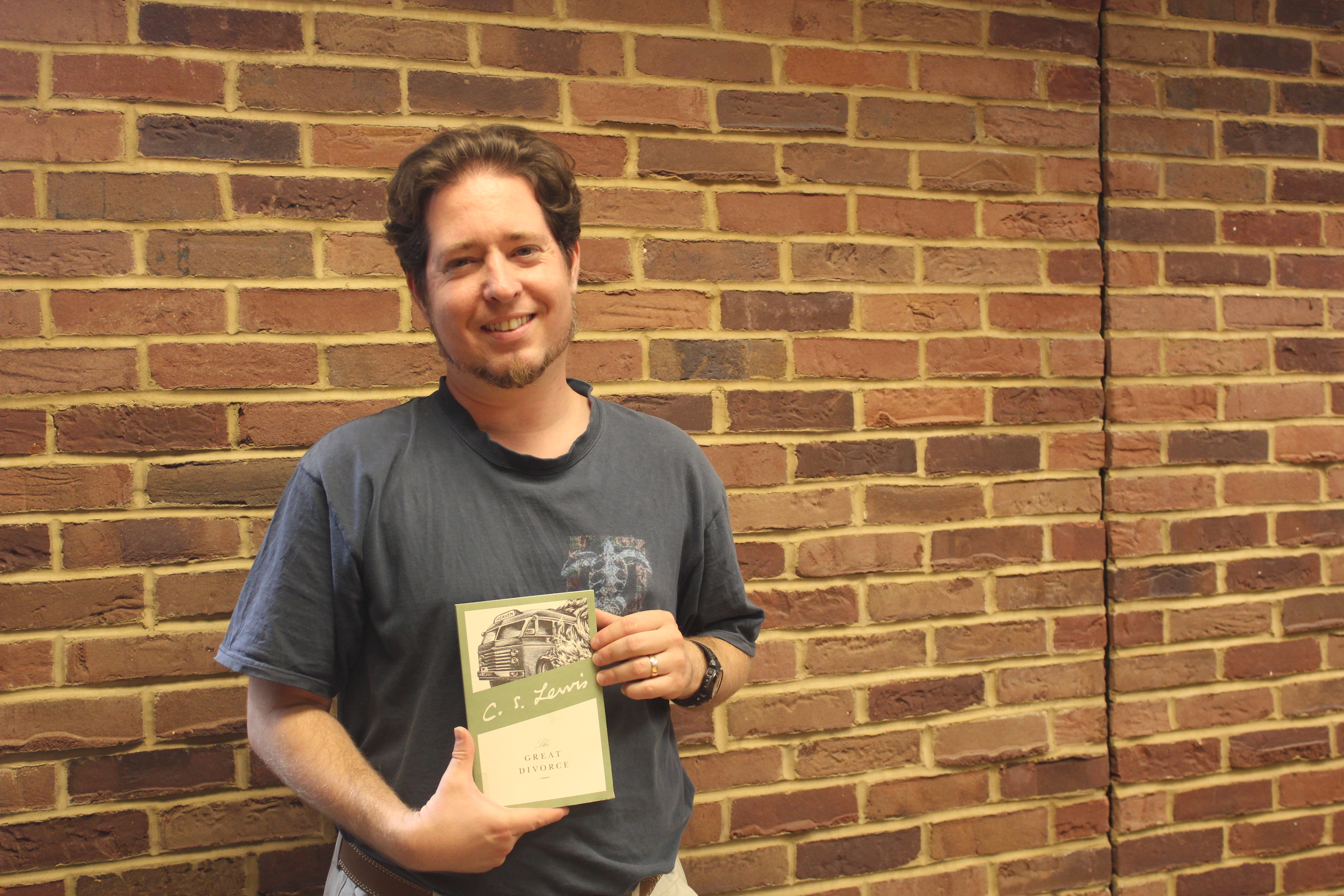The library honored five professors who have received promotions or tenure during the past year by displaying their favorite books in the library lobby last week.
Each faculty member was told to pick a book that’s content has been influential in some way to them. The books ranged from fiction books read during adolescence to textbooks read while working towards a doctorate degree.Each book, along with a brief description of both content and the professor’s reason for picking it, sat propped up for library patrons to leaf through or scan on a table near the entrance. The display was connected to the library’s annual faculty recognition event.
“Each fall we partner with the academic dean’s office to hold a reception in the library, usually in September, where we honor those faculty members who received promotions and/or tenure during the past year,” said Lisa Guedea Carreño, library director.
The five professors who were granted either a promotion or tenure were Andy Ammons, associate professor of biology, Christine Noria, associate professor of psychology, Jerrell Richer, professor of economics, Ryan Sensenig, associate professor of biology, and Ruth Stoltzfus, professor of nursing.
Richer, who was granted a promotion in 2011 while serving as an SST leader in Peru, is being honored this year. The book he chose to display was “End of the Spear” by Steve Saint.
The book is a fiction work that centers on a man whose father was killed while working as a missionary pilot in Ecuador. Later in life, after moving back to the United States, he returns to Ecuador with his family to discover more about his father’s life and death.
“This is a story of adventure, forgiveness and transformation,” Richer said in his written statement. “May we as people discover how to live in harmony with each other, with our Creator and with the rest of creation.”
Noria, who was granted a promotion, chose the book “The Mismeasure of Man” by Stephen Jay Gould. Gould, a historian, biologist and paleontologist who also worked extensively in evolutionary psychology, wrote the book in order to tackle hard questions of how human intelligence can be measured and how it has been in the past.
“I distinctly remember when ‘The Bell Curve’ was published during my years in graduate school at Notre Dame,” Noria said in her written statement. “It shaped my perceptions of the importance of understanding how good measurement is conducted, especially as it relates to culture, race, intelligence, standardized testing and inherent cultural biases.”
“‘The Mismeasure of Man’” is a response to the issues raised in ‘The Bell Curve’ and emphasizes the importance of the measurement of human characteristics,” said Noria.
Sensenig, who was granted tenure, chose a book entitled, “Savannas of our Birth—People, Wildlife, and Change in East Africa” by Robin S. Reid. The book tells how the East African savannas have played a role in human evolution.
“Reid’s book strikes a helpful balance in presenting how pastoralist communities both positively and negatively shape their landscape,” said Sensenig in his written statement. “It also offers a hope-filled message suggesting that healthy savannas require human engagement, it is an idea I like.”
Stoltzfus, who was granted both a promotion and tenure, chose the book, “Complementary Nature” by J.A. Scott Kelso and David A. Engstrom. The book suggests that the worldwide tendency to polarize concepts should instead change its focus to look in between the polarities.
“The focus of my research for my PhD was narrative pedagogy, which isn’t a pedagogy at all, but more of a philosophy of teaching,” said Stoltzfus in her written statement. “I struggled with some concepts that seemed contradictory. How to deal with even the terms ‘narrative’ and ‘pedagogy’? I came across Kelso and Engstrom’s idea of complementary pairs and found my answers.”
Ammons, who was granted a promotion, chose the book, “The Great Divorce” by C.S. Lewis. “The Great Divorce” is an allegory that describes heaven and hell.
“I always enjoyed the works of C.S. Lewis growing up, but this book along with ‘The Screwtape Letters’ were formative for me as a teenager in trying to understand my own faith and the nature of sin.” said Ammons. “The ‘grey city’ of hell or purgatory and its absence of nature, the possibility of redemption for all lost souls, and the nature of heaven in this book all struck a chord within me. A more modern take on Dante’s ‘Divine Comedy’ (including ‘Inferno’), this allegory of a journey through the afterlife helped refine my adult Christian worldview.”



